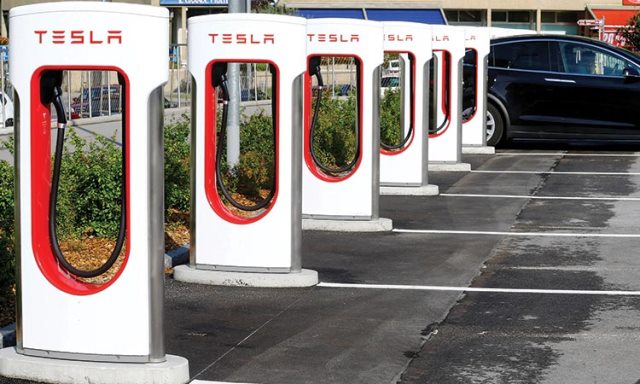White House revealed that Tesla will open part of its U.S. charging network to electric vehicles (EVs) made by rivals as part of a $7.5 billion federal program to electrify the nation’s highways to cut carbon emissions.
The move could help turn Tesla into the universal filling station – and risk eroding a competitive edge for vehicles made by the company. Tesla has access to the biggest network of high-speed superchargers in the United States, Reuters news report said.
Tesla will open 3,500 new and existing superchargers along highway corridors, as well as 4,000 slower chargers at locations like hotels and restaurants, to non-Tesla customers by the end of next year, the administration said.
Tesla would be eligible for a subsidy – including retrofitting its existing fleet – as long as its EV chargers would allow other vehicles with a federally backed charging standard called CCS to charge.
Tesla has 17,711 superchargers, accounting for about 60 percent of total U.S. fast chargers that can add hundreds of miles of driving range in an hour or less. There are also nearly 10,000 “destination” chargers with Tesla plugs that can recharge a vehicle overnight.
Opening up access to Tesla’s network would be a quick win for the federal program to build 500,000 EV chargers by 2030, up from 130,000 currently.
Tesla owners pull into a charger spot, plug in their car with Tesla’s own charging device, and the station automatically adds battery power and bills the car owner’s account. To add non-Tesla owners would require a potentially different plug and way to pay.
All EV drivers will be able to access these stations using the Tesla app or website.
The amount of federal funds at stake meant Musk had to either act on the plan or risk other charging companies, such as EVgo and ChargePoint Holdings, taking the market.
“The amount of money involved in the National Electric Vehicle Infrastructure Formula Program provides a strong incentive for Tesla to adapt its strategy to include the installation of CCS ports,” said Sam Houston, senior vehicles analyst at the Union of Concerned Scientists.
Chris Harto, a senior policy analyst at Consumer Reports, said, “There is no doubt the $7.5 billion in federal charging investment threatens Tesla’s competitive advantage. That is actually the entire point of the program.”
“There is a strong likelihood that if they open the supercharger network to other vehicles, their current excellent reliability rate will decline significantly,” said Guidehouse Insights analyst Sam Abuelsamid.

